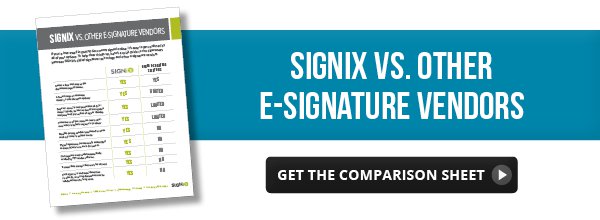You remember the floppy disk, right? When they were developed back in 1967, it was cutting-edge technology. Before long, every computer had a floppy disk drive, and people couldn’t imagine doing business without them.
Today, you’d be hard pressed to find an office that uses floppy disks. No one would even consider storing important information on a floppy disk, and you’d be in trouble if all of your company’s documents were stored on floppies.

Compare the floppy disk to a technology that most of us use all the time—maps. Maps have existed for centuries, yet we still use them today. They’ve become much more advanced over the years (evolving from cave paintings all the way to GPS smartphone apps), but if you picked up a map from thirty years ago, it would still be valid today. You might need an expert to tell you what you’re looking at, but the underlying “technology” that exists today will still be valid in 100 years.
 Why are we telling you this? Because if your e-signature technology is proprietary (not based on standards), it will eventually become obsolete, just like the floppy disk. Newer, better technology will take its place. It’s just a fact of life. But if you use technology that’s based on established standards, your signatures will still be readable and valid in 100 years—just like a map.
Why are we telling you this? Because if your e-signature technology is proprietary (not based on standards), it will eventually become obsolete, just like the floppy disk. Newer, better technology will take its place. It’s just a fact of life. But if you use technology that’s based on established standards, your signatures will still be readable and valid in 100 years—just like a map.
Only a select few e-signature vendors make sure your signed documents will be valid forever (though most will try to convince you they make the cut).
At SIGNiX, our signatures are based on documented technical standards that aren’t proprietary to us. These standards have been well known in the technology sector for more than 20 years.
Our digital signatures and their cryptographic information are embedded into your signed documents, so you don’t need to be a SIGNiX customer, or visit our website, just to check if they are valid. In fact, you don’t even need to be connected to the Internet to verify your signatures!
With SIGNiX, each signature can be verified with any free PDF reader software. This software can read digital signatures (because they’re based on standards) and let you know whether someone has tampered with your documents. You don’t even have to be an IT expert to see if documents have been altered. The software will show you a green checkmark if the document is valid or a red X if it has been altered.
E-signature vendors that don’t use digital signature standards can’t promise that your documents can be verified without their help. Instead of embedding the signatures into each document, they only give you a link to their website to prove if it’s been tampered with. The link opens a new window and shows you a version of your document that’s stored on their servers (which opens a whole new can of worms for companies who want to control who has access to sensitive information on their documents). If their technology changes or they go out of business, your documents will be obsolete, just like a floppy disk.
Don’t believe us? Try to verify one of “the other guys’” documents without an Internet connection. You’ll be left with a “page not found” error. You can bet a judge and jury won’t be convinced by an error message. If one of your signed documents can’t be verified, it can be deemed inadmissible in court.
We can’t overstate how important this issue is. Every document you get signed with proprietary e-signature technology puts your company at more and more risk. Choose a standards-based digital signature product to protect your documents from the risk of becoming obsolete.
%20formatted-1.png?width=2528&height=739&name=SIGNiX%20Logo%20Main%20(white)%20formatted-1.png)

